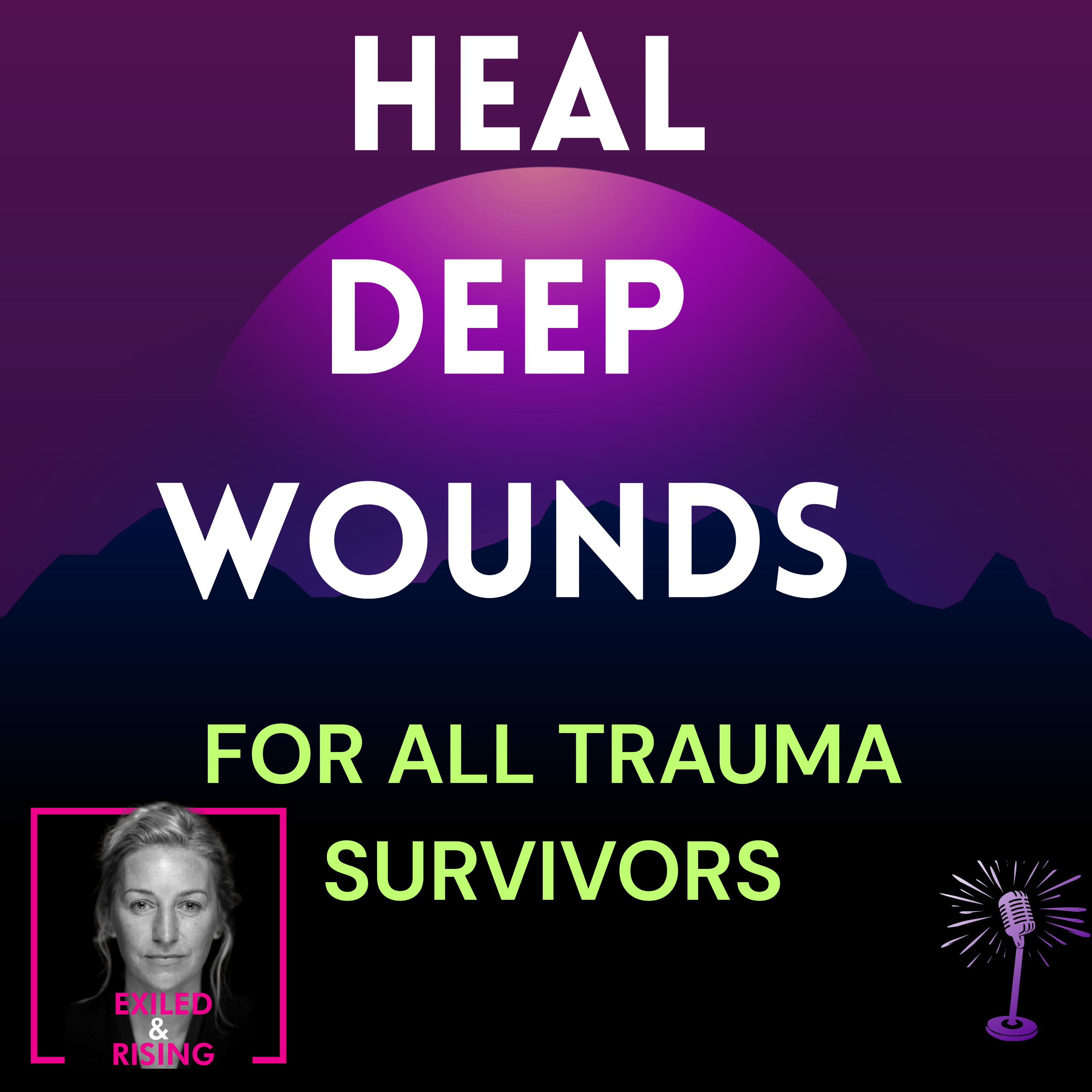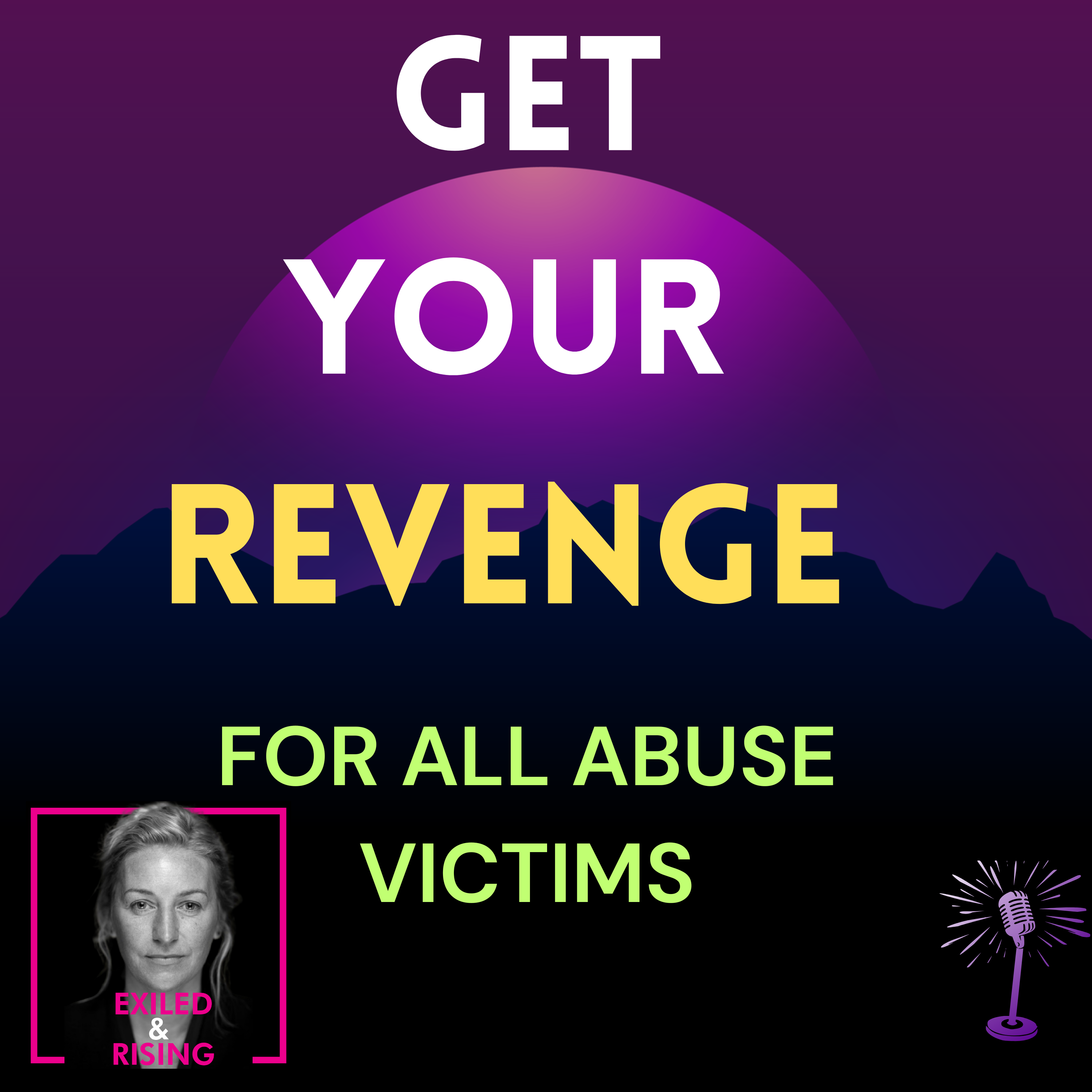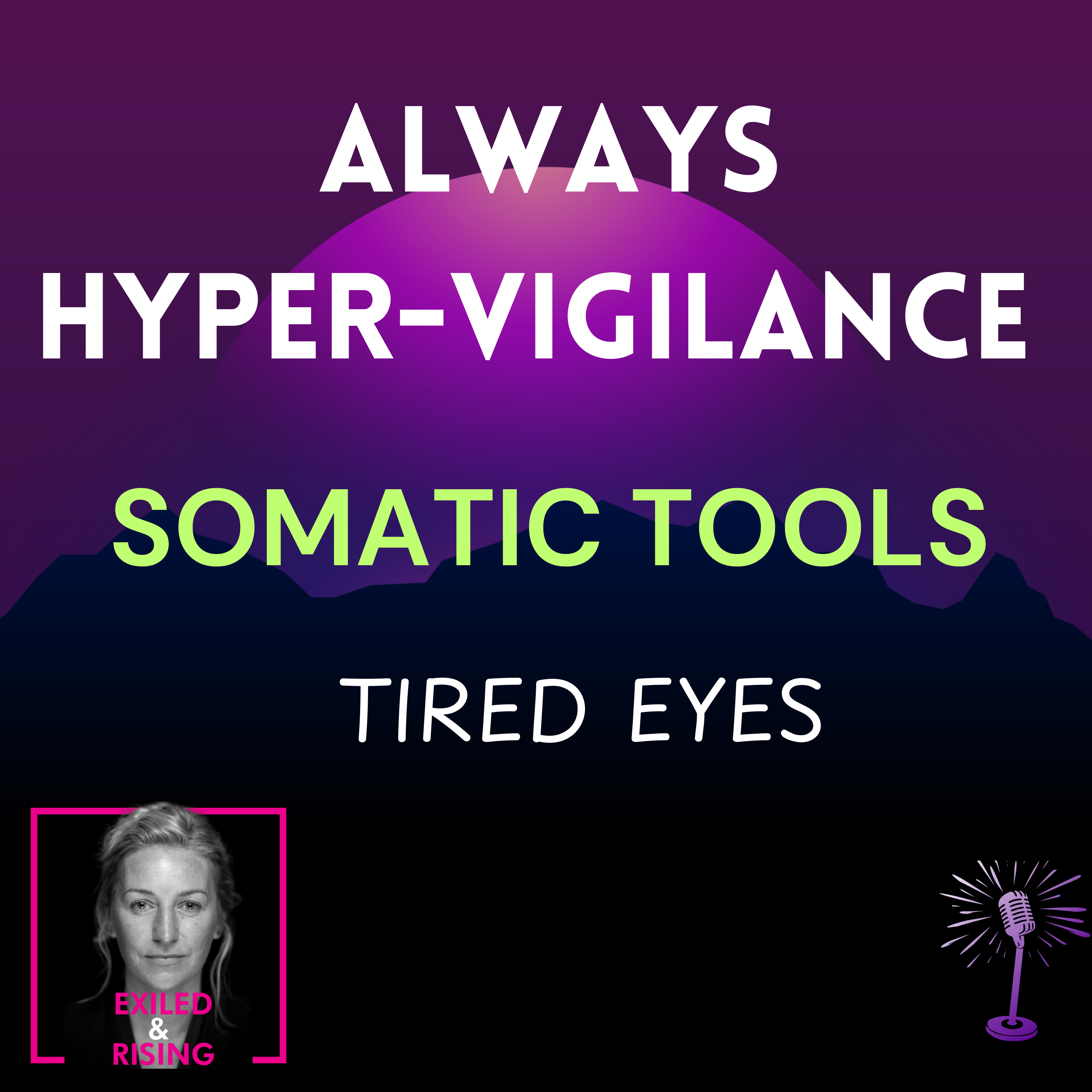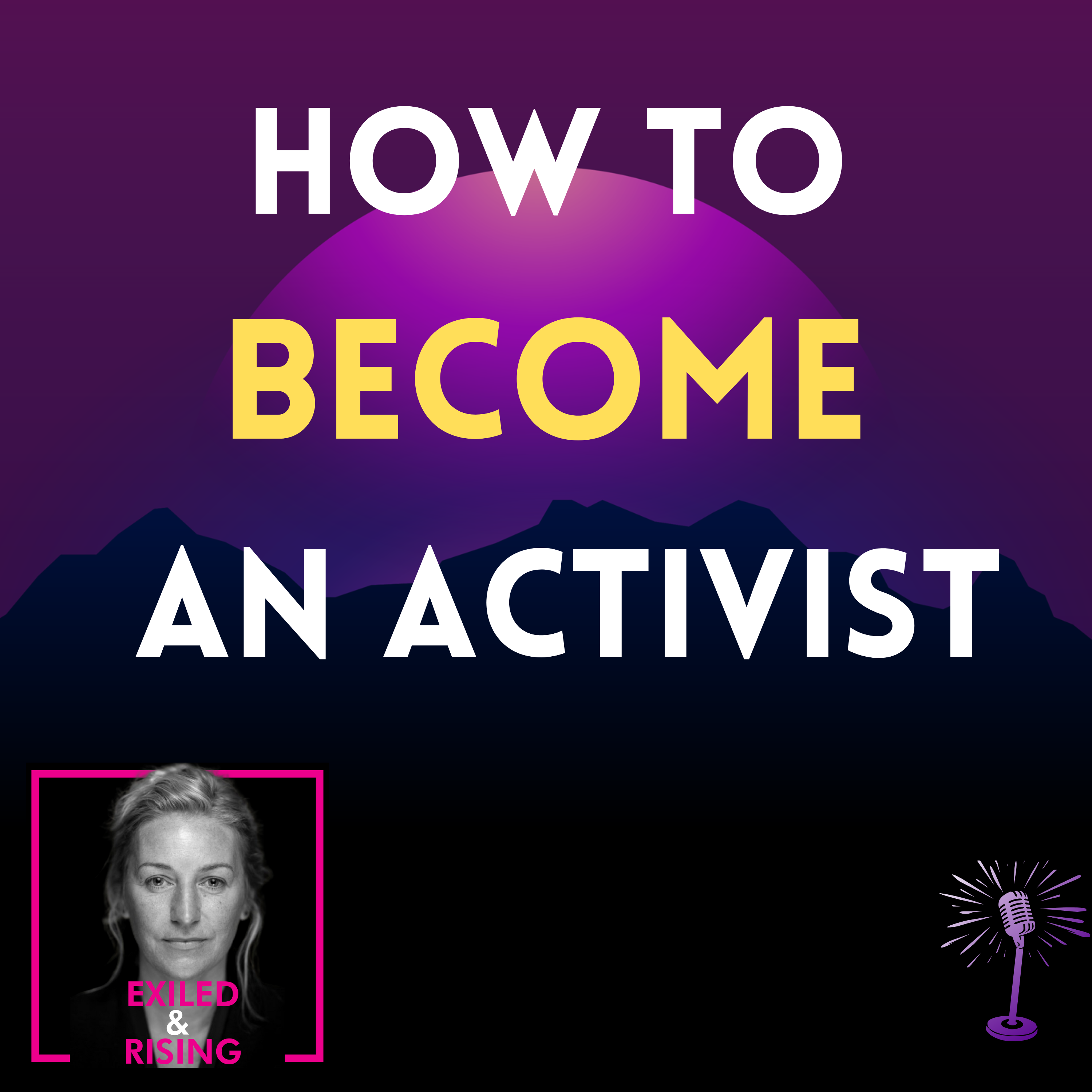Episode Transcript
[00:00:00] Where we come from is more than geography.
[00:00:05] It is our, uh, wounds, beauty, silence and survival.
[00:00:12] This piece is my way of naming mine.
[00:00:16] And maybe as you listen, it might steer yonder, remembering.
[00:00:22] I am Anna Mael. This is excellent rising.
[00:00:28] Where am I from?
[00:00:32] I'm from two wounded children in adult bodies.
[00:00:38] I'm from a fragile mother and a, ah, disconnected father.
[00:00:46] I'm from an inner land of beauty and deep sorrow.
[00:00:53] I am from pristine grace and abundant beauty.
[00:01:00] I am from you and everyone.
[00:01:05] I am from survivors.
[00:01:10] I am from neglect.
[00:01:14] I am m. From abuse.
[00:01:18] I am from life.
[00:01:22] I am from stand still or get shot.
[00:01:29] End of the rifle barrel.
[00:01:33] Yet I still shine.
[00:01:37] I still rise.
[00:01:40] I still show up.
[00:01:45] I still stand up when I witness harm.
[00:01:52] And I still cry over what has been done.
[00:02:01] So let's take a pause.
[00:02:05] If you have a piece of paper, you can write things down, you can replay.
[00:02:11] And let's go over the piece, what's behind it.
[00:02:16] When I say I'm from two wounded children in adult bodies, I'm naming inheritance.
[00:02:26] And I would like you to see how unfinished pain travel through families, travel through your parents.
[00:02:37] And often arriving in us before we ever had a choice.
[00:02:43] It's inherited. It's not ours.
[00:02:50] When I speak of fragile mother and a, uh, disconnected father, I am honoring complexity without vilifying and judging anyone.
[00:03:06] And I would like you to hold the truth that love and unintentional harm can coexist.
[00:03:21] And when we acknowledge both, it is an, uh, act of conscious healing.
[00:03:32] It is an act of maturity, of beginning, of integration of your own wounds.
[00:03:44] When I say I am from an inner land of beauty and deep sorrow.
[00:03:55] I am telling you paradox is not a mistake.
[00:04:02] It is our life is both.
[00:04:06] It is a place of living in a paradox.
[00:04:12] It is. Yes. And.
[00:04:18] And I would like you to let both parts, uh, live in you.
[00:04:27] Both parts.
[00:04:28] This is how we expand our inner capacities, right? Our, uh, nervous system can expand this window of tolerance. As you know, I'm somatic experiencing therapist for PTSD and trauma recovery.
[00:04:45] As we heal, healing is expanding these capacities to keep both without forcing one to cancel the other.
[00:05:00] When we force it, we are in a vicious cycle of fighting, of anguish, of turmoil.
[00:05:12] When I claim pristine grace and abundant, um, uh, beauty.
[00:05:21] I am refusing to let harm alter the whole story, to write the whole story, to let trauma.
[00:05:37] To write my own history. Only it is both.
[00:05:45] And if you can just allow to keep a small, steady place inside of yourself where your goodness is not dependent on.
[00:06:02] On anyone's behavior.
[00:06:07] Let me repeat this Foster Reclaim, revive one micro, steady, uh, place inside of you.
[00:06:25] Start with the micro where your goodness, where your grace, where your abundant beauty is not dependent on anyone's behavior, that cannot be, uh, robbed by your inheritance, by experience, by what you went through.
[00:06:58] Don't let that get robbed from your essence.
[00:07:05] When I say I am from you and everyone, I'm, um, widening the frame beyond geography.
[00:07:20] And I would like you to feel how belonging can be chosen.
[00:07:27] It can be chosen not by the place where we live and also not only what we inherited.
[00:07:40] Right?
[00:07:42] Because I am from you and everyone.
[00:07:48] You are from me and everyone.
[00:07:53] We are collective. And you choose your collective. Your collective can be your own adaptive family of your own souls, of your own souls and your own family if you choose to.
[00:08:13] When I say I am from survivors, from neglect, from abuse, I'm choosing precision over silence.
[00:08:27] And I would like you to consider that naming what happened is not disloyalty.
[00:08:35] You are not betraying your family.
[00:08:40] You are not betraying anyone. Then you name your harm.
[00:08:48] When you name, when you list what is done to you, you call it out. You have right to call it out.
[00:08:58] This is how we heal our dignity, our autonomy, our agency for all victims of abuse.
[00:09:11] This is how we start to heal our voice, our bodies.
[00:09:23] You name it, you own it. There is no shame in it.
[00:09:29] Don't let patriarchal system to make you feel ashamed.
[00:09:41] No, that era is over.
[00:09:45] That era is over when I say I am from the standstill or get shot.
[00:09:57] And of, uh, the rifle barrel, I am naming and I am honoring every single person who went through the war and who is still in the war, who is still facing gun violence, tyranny, genocide, fascism, racism.
[00:10:28] This was my life for many years.
[00:10:33] And also that rifle, uh, barrel was, in my experience, it was a rifle.
[00:10:44] In your experience, it can be abuser.
[00:10:51] It can be abuser.
[00:10:55] And I want to name this proximity to violence that trains our, uh, body to brace, to submit, to be caged, to be silent, to disappear.
[00:11:15] And I would like you to notice gently, gently, very own body still braces where and how your body has tried to keep you alive.
[00:11:33] That bracing was necessary.
[00:11:36] No shame in it now, especially for men.
[00:11:42] If you had to submit yourself and make yourself small and invisible, you had to, to survive.
[00:11:52] And if you are now undocumented in the war, exiled, facing ice, facing deportation, keep yourself small.
[00:12:08] Keep yourself small and silent, and the time will come, as now, as I am, I am the witness, uh, where I moved from place of deep, deep silence and submission to survive into the place where uh, I'm using my experience.
[00:12:34] I am using my voice. I'm using my power to name what was done and what's not right.
[00:12:48] And so I can give a power and agency to that someone who is right now in the place where I was.
[00:13:02] And for now, if you need to survive and if you have to survive, that's all what you will do.
[00:13:16] When I end the peace with. I still shine, I still rise, I still show up, I still stand up, and I still cry over what has been done.
[00:13:40] I am refusing the performance of strength that erases, uh, grief.
[00:13:50] I am refusing pretense. I'm refusing to comply with the words resiliency and the strength as a, um, buzzwords. Now.
[00:14:07] It is both people.
[00:14:10] It is both.
[00:14:13] When we survive, and then we are living in trauma, uh, they still can show up, can stand up.
[00:14:28] And we can also be very small because we have to to survive.
[00:14:37] And we can still cry or grieve our, uh, loss.
[00:14:45] So I would like you to let your rising include your tears, include your grief.
[00:14:55] It's both.
[00:14:57] It is both.
[00:15:02] So, core teachings.
[00:15:05] Core teachings.
[00:15:07] You can write this down.
[00:15:09] Pause. Okay.
[00:15:14] Number one, Inheritance without destiny.
[00:15:22] Meaning I carry what preceded me, but I'm not condemned to repeat it.
[00:15:32] You are not condemned to repeat what's inherited.
[00:15:42] Second, paradox is humane.
[00:15:46] Beauty and sorrow belong together in a whole life.
[00:15:53] Standing up and grieving belong together.
[00:16:06] So let's normalize this end, okay?
[00:16:12] Truth is repair.
[00:16:15] Naming neglect, naming abuse, naming violations, naming it, own it.
[00:16:28] Calling up.
[00:16:29] Calling up on oppressors, on abusers, on injustice.
[00:16:35] Restores dignity to the one who names.
[00:16:43] Fourth, belonging is expandable.
[00:16:49] It's expandable. It's a big landscape where you can belong, explore.
[00:16:57] I come from survivors and from humanity.
[00:17:02] Okay.
[00:17:04] Not only from a house with one name on the mailbox. No, we are coming collectively from humanity.
[00:17:23] Fifth, the body remembers. Okay? Everything is in body. As somatic therapist, your healing starts in your body Absolutely does.
[00:17:36] And also, all the wounding is in our system.
[00:17:44] Proximity to threaten. Train us to be vigilant.
[00:17:50] Vigilant.
[00:17:52] Or we can move into the state of resignation.
[00:17:56] So gentleness, Gentleness. Time retrains it.
[00:18:02] Gentleness and time will revive your body back to the strength it will.
[00:18:14] And the last one is strength includes softness as well.
[00:18:26] Tears.
[00:18:27] Gentleness.
[00:18:30] Softness and standing up are not opposites.
[00:18:36] They're your companions.
[00:18:38] They're, uh, your companions.
[00:18:42] It's both.
[00:18:43] It's both.
[00:18:45] So this piece is called Where Am I From?
[00:18:50] It's from the book, the Trauma We Don't Talk about.
[00:18:57] I am Anna Mile.
[00:18:59] This is excellent. Rising.
[00:19:04] If this episode touched something in you, let it be beginning.
[00:19:11] Let it be beginning.
[00:19:18] Check all the links in the show notes.
[00:19:22] Please share follow and as always, be gentle with yourself until next time.
[00:19:34] Much care, Much careful.



